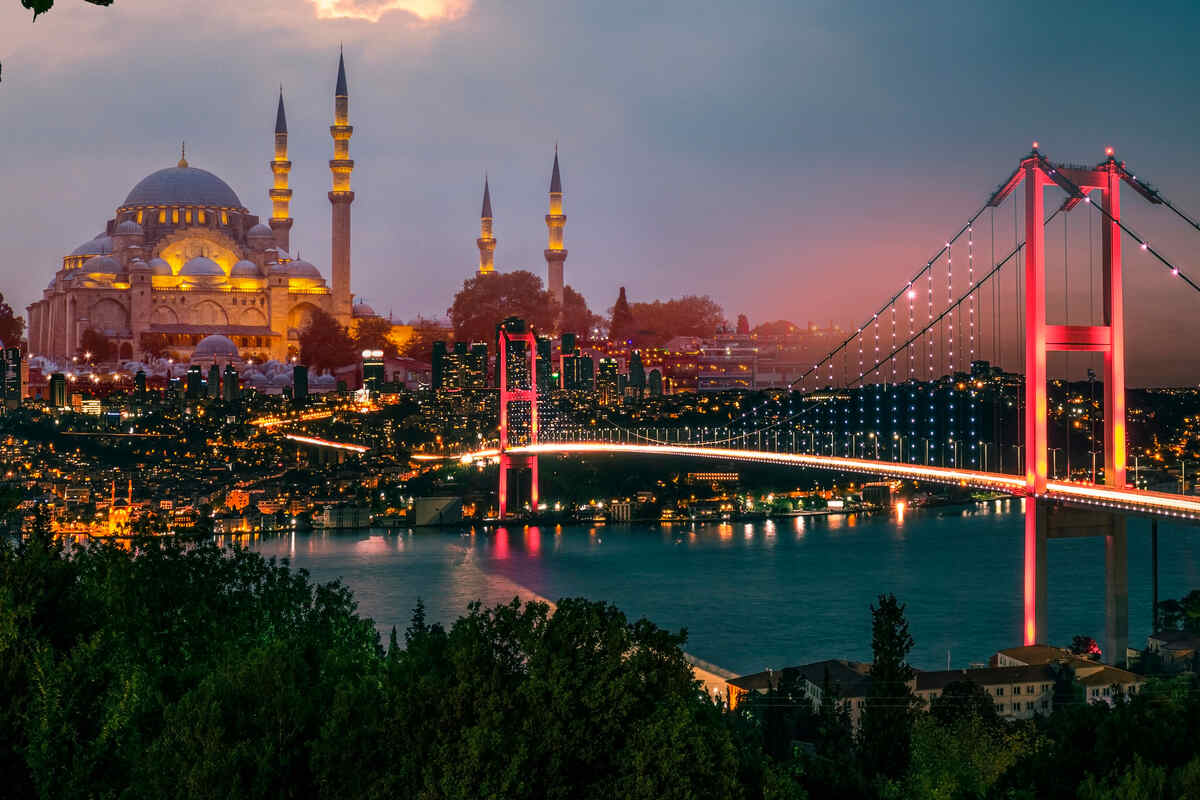Can Turkiye and Egypt read the regional zeitgeist this time?
Can Turkiye and Egypt read the regional zeitgeist this time?

In November 2012, when Recep Tayyip Erdogan was prime minister of Turkiye, he visited Cairo with a large delegation from his government and the private sector. Erdogan delivered a speech at Cairo University in which he praised Egypt for recalling its ambassador to Israel in response to Israeli airstrikes on Gaza.
Erdogan suggested that an Egyptian-Turkish alliance could foster peace and stability in the eastern Mediterranean, and that such a partnership could constrain Israel’s capacity for military action.
However, the course of Turkish-Egyptian relations took a different turn after 2013, as events significantly altered the trajectory of their relationship.
Erdogan, now president, visited Cairo this week for his first time in 12 years. His visit was significant in several ways. First, in the regional context, it took place amid the war in Gaza, which has particularly serious implications for Egypt.
Second, it represents the final link in Ankara’s efforts since 2021 to normalize relations with its regional neighbors. For years, Erdogan has demonstrated mastery in reading the regional zeitgeist, and rapprochement with Egypt was critical within the regional normalization context.
Egypt and Turkiye are grappling with similar economic challenges and regional obstacles, and therefore seek more cooperation than competition.
Sinem Cengiz
Third, Egypt and Turkiye are grappling with similar economic challenges and regional obstacles, and therefore seek more cooperation than competition.
Last, the visit reflects the changing perceptions at the leadership level in both countries. The persistent tensions in Turkish-Egyptian relations were largely influenced by the perceptions Erdogan and President Abdel Fattah El-Sisi held of each other.
Since 2022, the two leaders have met three times on neutral ground in other countries, including Saudi Arabia in November last year, at the G20 summit in India in September, and in Qatar in November 2022 at a World Cup football match.
Last year there was a significant turning point in relations, characterized by several developments, most notably the exchange of ambassadors and mutual official visits.
As a journalist, I closely monitored the deterioration of relations between the two countries and conducted interviews with the Turkish and Egyptian ambassadors of the time. Although the initial underlying reasons for the souring of relations have not completely disappeared, the regional landscape has evolved significantly, with interests shifting from the ideological to more pragmatic concerns. As the saying goes, a lot of water has flowed under the bridge, and now, with Erdogan’s visit, another episode in Turkish-Egyptian relations has begun.
Both countries should now strive to maximize the benefits of this new era. It is evident it will be built around mutual benefits.
Sinem Cengiz
Both countries should now strive to maximize the benefits of this new era. It is evident it will be built around mutual benefits. Turkiye has certain expectations of Egypt and, likewise, Egypt has expectations of Turkiye. A Turkish-Egyptian reconciliation could dismantle some of the political sticking points on several fronts.
The relationship between the nations has long been crucial for regional peace and stability. While it is often described as a competitive relationship, occasionally leading to political tensions or disruptions, it has the potential to evolve into cooperation.
First, deeper cooperation between Ankara and Cairo could facilitate Turkish-Syrian normalization efforts in the future if Egyptians can play a part in negotiations for a peaceful resolution of the Syrian conflict, just as they did in 1998 during the crisis between Turkiye and Syria. This could help ease Turkish concerns about refugee issues and secure security guarantees in northern Syria.
Second, Turkiye seeks Egypt’s support for its efforts to join the Mediterranean gas club and negotiate a permanent resolution to their differences. Additionally, Ankara wants to establish a maritime border agreement with Cairo.
Egypt, leveraging its alliances with Greece and Cyprus in the eastern Mediterranean, could facilitate a process that grants Turkiye access to gas resources in the region, in return for which Turkiye can play a role in resolving issues between Egypt and Ethiopia, which enjoys good relations with Ankara.
Third, defense and trade seem to take precedence in the normalization process between Turkiye and Egypt, mirroring Ankara’s normalization efforts with Gulf states. Speaking a week before Erdogan’s visit to Cairo, Turkish Foreign Minister Hakan Fidan said Turkiye would sell drones to Egypt, which was seen as a precursor to deeper military relations. Turkish exports of this kind have increasingly become a diplomatic instrument, which experts have dubbed “drone diplomacy.”
In addition, the presidents of both countries have set a goal of doubling the $10 billion volume of trade between their nations in the next few years. Some trade and defense agreements were signed in 2013 but frozen when relations became more tense. The revitalization of these deals should be a priority.
Also, the joint operations that two countries were conducting were frozen, so military cooperation also be at the top of the to-do lists.
Compared with the pace of Turkiye’s normalization efforts with other countries in the region, rapprochement with Egypt has been a slow, gradual process. Both parties opted to proceed cautiously, taking time to explore the potential benefits and address key concerns. This approach is likely to bring solid outcomes in the near future.
Some thorny issues remain on which they still disagree, such as Libya and interests in the Horn of Africa. We can be certain that neither Turkiye nor Egypt are likely to change their positions on Libya in particular, but they could compartmentalize their relationship based on the issues that they can work on together. For instance, they might be able to reach an understanding on ways to find a solution for the political deadlock in Libya that could safeguard the interests of both sides.
Over the past decade, a significant trust crisis emerged between Turkiye and Egypt. The success of this potential reset of relations largely hinges on the determination of their leaders to overcome the issues on which their interests diverge and focus on those in which their interests converge.
• Sinem Cengiz is a Turkish political analyst who specializes in Turkiye’s relations with the Middle East. X: @SinemCngz
Disclaimer: Views expressed by writers in this section are their own and do not necessarily reflect Arab News’ point of view




